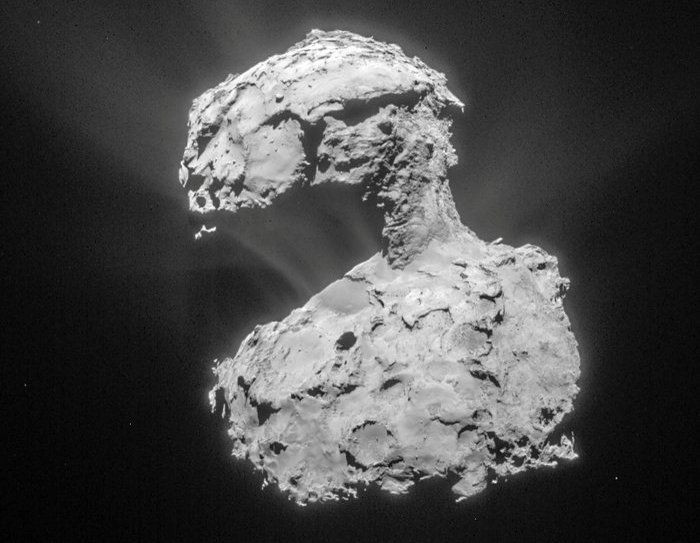Philae Lander Could Be Sitting On A Comet Full Of Alien Microbes, Scientists Say

The comet 67P/Churyumov-Gerasimenko, currently being orbited by the European Space Agency’s Rosetta spacecraft, might be harboring microbial alien life beneath its crust. According to a pair of scientists -- Max Wallis from the University of Cardiff and Chandra Wickramasinghe from the Buckingham Centre for Astrobiology -- several features of the comet such as its black crust and underlying ice suggest that it could have an abundance of alien life.
“What we're saying is that data coming from the comet seems to unequivocally, in my opinion, point to microorganisms being involved in the formation of the icy structures, the preponderance of aromatic hydrocarbons, and the very dark surface,” Wickramasinghe, an astronomer and astrobiologist who was involved in planning the mission 15 years ago, reportedly said. “These are not easily explained in terms of pre-biotic chemistry.”
Although neither Rosetta nor its Philae lander is equipped to search for direct evidence of life on the comet, the European spacecraft has detected strange “clusters” that resemble viral particles. Additionally, images also seem to suggest the presence of large “seas” beneath the surface of the duck-shaped comet, which could support active microorganisms.
“Rosetta has already shown that the comet is not to be seen as a deep-frozen inactive body, but supports geological processes and could be more hospitable to micro-life than our Arctic and Antarctic regions,” Wallis said in a statement released Sunday.
According to the scientists, if the comet does harbor microbes, they would be “extremophiles” capable of surviving under harsh variations of temperature and pressure. Both astronomers used computer simulations to show that such microbes could, in fact, survive in watery regions of the comet. And, organisms with “anti-freeze” salts could survive at temperatures as low as -40 degrees.
However, while existence of alien life on a comet might provide a near-conclusive evidence for the theory of panspermia -- which suggests that life on planets like Earth might have been seeded by microbes living on comets -- as of now, this evidence would be hard to come by.
“Future missions to 67P and other comets should include life-seeking instruments,” Wickramasinghe reportedly said.
© Copyright IBTimes 2024. All rights reserved.












